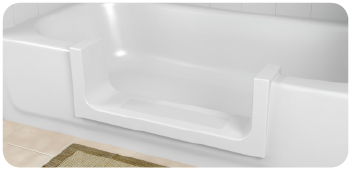As seniors age, they may want to continue living in their own homes rather than moving into assisted living or other care facilities. While aging in place can provide seniors with a sense of independence and familiarity, it’s important to take steps to ensure their safety and well-being. Here are some important safety tips for seniors aging in their own homes:
Home Opportunities
Home modifications: Seniors should consider making modifications to their homes to ensure safety and accessibility. This can include installing grab bars, handrails, non-slip mats, and other safety items mentioned earlier. Seniors may also need to modify their homes to accommodate mobility devices like wheelchairs or walkers.
Regular home maintenance: Seniors should ensure that their homes are well-maintained to prevent hazards like loose flooring or cluttered walkways. Regular cleaning and maintenance can also prevent the growth of mold or pests that can be harmful to seniors.
Home security: Seniors should take steps to ensure their homes are secure and protected from intruders. This can include installing security cameras, motion sensor lights, and door and window alarms. Seniors should also be cautious when answering the door or talking to strangers on the phone.
Personal Opportunities
Medication management: Seniors should keep track of their medications and take them as prescribed. It’s important to keep medications organized and stored in a safe, accessible place to prevent medication errors or overdoses.
Healthy diet and exercise: Seniors should maintain a healthy diet and exercise regularly to prevent falls and maintain good overall health. A balanced diet and regular exercise can improve strength, balance, and coordination, reducing the risk of falls. Engaging in physical activity can help seniors improve their strength, balance, and flexibility, which can reduce the risk of falling.
Check your vision: Poor vision can increase the risk of falls. Seniors should have their vision checked regularly and wear appropriate glasses or contact lenses.
Wear appropriate footwear: Seniors should wear shoes with good support and non-slip soles to reduce the risk of falling.
Stay hydrated: Dehydration can cause dizziness and increase the risk of falls. Seniors should drink plenty of water and other fluids throughout the day.
Take it slow: Seniors should take their time when standing up, walking, and turning to avoid losing balance and falling.
Consider Assistive Devices: Canes, walkers, and other assistive devices can help seniors maintain their balance and prevent falls.
Important Opportunities
Social support: Seniors should maintain social connections to prevent isolation and loneliness, which can contribute to poor physical and mental health. Seniors should stay connected with family and friends, participate in social activities, and consider joining senior centers or other community groups.
Emergency preparedness: Seniors should have a plan in place for emergencies, including natural disasters or medical emergencies. This can include preparing an emergency kit, knowing evacuation routes, and keeping important documents and contact information in a safe, accessible place.
Overall, aging in place can provide seniors with a sense of independence and familiarity, but it’s important to take steps to ensure their safety and well-being. Seniors should consider making home modifications, maintaining their homes, managing their medications, maintaining a healthy lifestyle, staying socially connected, preparing for emergencies, and ensuring their homes are secure. By taking these steps, seniors can age in place safely and comfortably.





